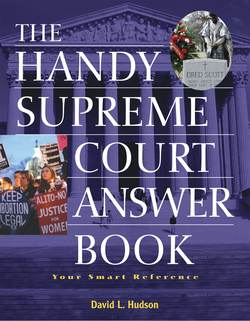Читать книгу The Handy Supreme Court Answer Book - David L Hudson - Страница 259
На сайте Литреса книга снята с продажи.
In what decision did the Court rule that Ohio did not have to release a suspected criminal to Kentucky?
ОглавлениеThe Taney Court unanimously ruled in Kentucky v. Dennison (1861) that the governor of Ohio, William Dennison, did not have to release an Ohio man who helped a female slave escape from Kentucky to Ohio. Willis Lago, a free African American man, helped a female slave named Charlotte escape from the slave state of Kentucky to the free state of Ohio.
Kentucky governor Beriah Magoffin asked Ohio governor Salmon Chase, the future chief justice of the U.S. Supreme Court, to return Lago for prosecution. Chase, an abolitionist, refused to comply. When Chase left office, his successor, Dennison, also refused to comply. Magoffin then sued in the U.S. Supreme Court for a court order forcing Ohio to comply with the extradition order. The U.S. Supreme Court had original jurisdiction to hear the case because it was a case between two states, Kentucky and Ohio.
The U.S. Supreme Court ruled that while Dennison may have a moral duty to obey the law, the Court could not enforce him to comply. Taney wrote that Dennison should comply with the order but “if the Governor of Ohio refuses to discharge this duty, there is no power delegated to the General Government, either through the Judicial Department or any other department, to use any coercive means to compel him.”
